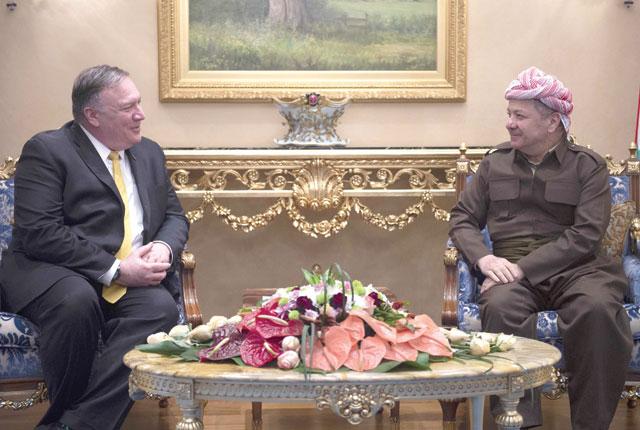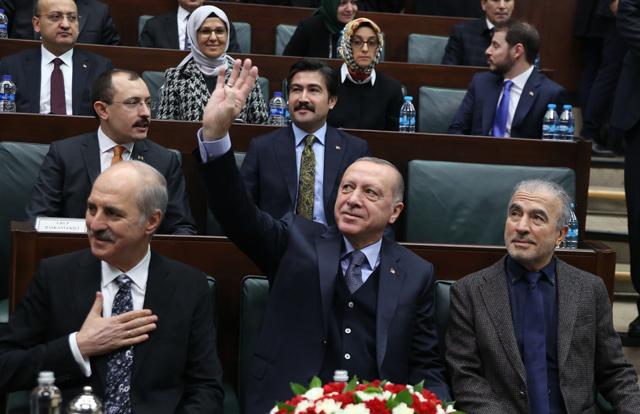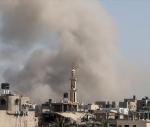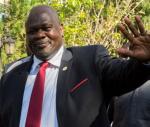You are here
Pompeo ‘optimistic’ Syria Kurds, Turkey can be protected
By AFP - Jan 13,2019 - Last updated at Jan 13,2019

US Secretary of State Mike Pompeo (left) meets with Masoud Barzani, leader of the Kurdistan Democratic Party, in the province's capital Erbil during a Middle East tour, on Wednesday (AFP photo)
ABU DHABI — Washington’s top diplomat said on Saturday he was ‘‘optimistic’’ a way could be found to protect Syrian Kurds while allowing Turks to ‘‘defend their country from terrorists’’ following a US pullout from Syria.
‘‘We are confident we can achieve an outcome that achieves both of those,’’ Secretary of State Mike Pompeo told journalists in Abu Dhabi.
The Gulf emirate is his latest stop in a regional tour aimed at reassuring allies after a shock December announcement by President Donald Trump that US troops would be withdrawn from Syria.
Pompeo’s remarks follow tensions between the US and Turkey over the fate of Washington’s Syrian Kurdish allies in the fight against Daesh group terrorists.
Turkey had reacted angrily to suggestions that Trump’s plan to withdraw troops was conditional on the safety of the US-backed Kurdish fighters, seen by the Turkish government as terrorists.
US-led operations against Daesh in Syria have been spearheaded on the ground by the Kurdish-dominated Syrian Democratic Forces (SDF).
Ankara sees the backbone of that alliance, the Kurdish People’s Protection Units (YPG), as a terrorist group linked to the Kurdistan Worker’s Party which has fought a decades-long insurgency against the Turkish state.
Pompeo said Friday that Washington recognised ‘‘the Turkish people’s right and [Turkish President Recep Tayyip] Erdogan’s right to defend their country from terrorists’’.
But, he added: ‘‘We also know that those are fighting alongside of us for all this time deserve to be protected as well.’’
Pompeo said he had spoken to Turkey’s Foreign Minister Mevlut Cavusoglu.
Multiple operations including American-backed assaults have ousted Daesh militants from most of the swathes of Syria and Iraq they captured in 2014.
But Trump’s announcement raised fears of a long-threatened Turkish assault against the Kurds.
On Thursday, Cavusoglu repeated that threat, telling NTV television: ‘‘If the [pullout] is put off with ridiculous excuses like Turks are massacring Kurds, which do not reflect the reality, we will implement this decision.’’
That came after a tense meeting between Turkish officials and Trump’s National Security Adviser John Bolton in Ankara, aimed at coordinating the pullout process after Bolton set conditions that appeared to postpone it indefinitely.
The terms included the total defeat of Daesh — still active in some parts of Syria — and ensuring protection for Kurdish fighters.
The US-led coalition launched operations against Daesh in September 2014, forming the SDF a year later with some 25,000 Kurdish fighters and 5,000 Arabs — all Syrian.
Backed by US arms and air support, the YPG-dominated group has overrun the de facto Syrian capital of Daesh, Raqqa and a large part of Deir Ezzor province.
But that stirred Turkish fears of a breakaway Kurdish state on its border.
As well as fighting Daesh, the YPG has also battled pro-Ankara forces in northwestern Syria, pulling SDF forces away from the battle against terrorists in the east of the country.
Trump’s announcement last month prompted the YPG to call on Syrian government troops to deploy alongside their own forces in the north to help counter a potential Turkish offensive.
A spokesman for the US military said on Friday it had begun ‘‘the process of our deliberate withdrawal from Syria’’.
But US defence officials quickly sought to clarify that while gear was being pulled out, ‘‘we are not withdrawing troops at this stage’’.
The withdrawal announcement had also sparked concerns among Arab states and Israel that it could open the way to growing Iranian influence.
But during a keynote speech in Cairo on Thursday, Pompeo said America would ‘‘use diplomacy and work with our partners to expel every last Iranian boot’’ from Syria.
In his speech at the American University in Cairo, Pompeo said the US was creating an anti-Iran front — the Middle East Strategic Alliance — bringing together Gulf countries as well as Egypt and Jordan.
Pompeo later told Fox News that the US would organise an international summit in Poland next month focusing on stability in the Middle East, including ‘‘making sure that Iran is not a destabilising influence’’.
Related Articles
ANKARA — Turkish President Recep Tayyip Erdogan on Tuesday condemned comments by a key US envoy over the future of a US-allied Syrian Kurdis
RIYADH — US Secretary of State Mike Pompeo said on Monday that talks were under way on Washington’s proposal to establish a ‘‘safe zone’’ in
BEIRUT — Alarmed by a US decision to leave Syria, Kurdish leaders who run much of the north are urging Russia and its ally Damascus to send


















